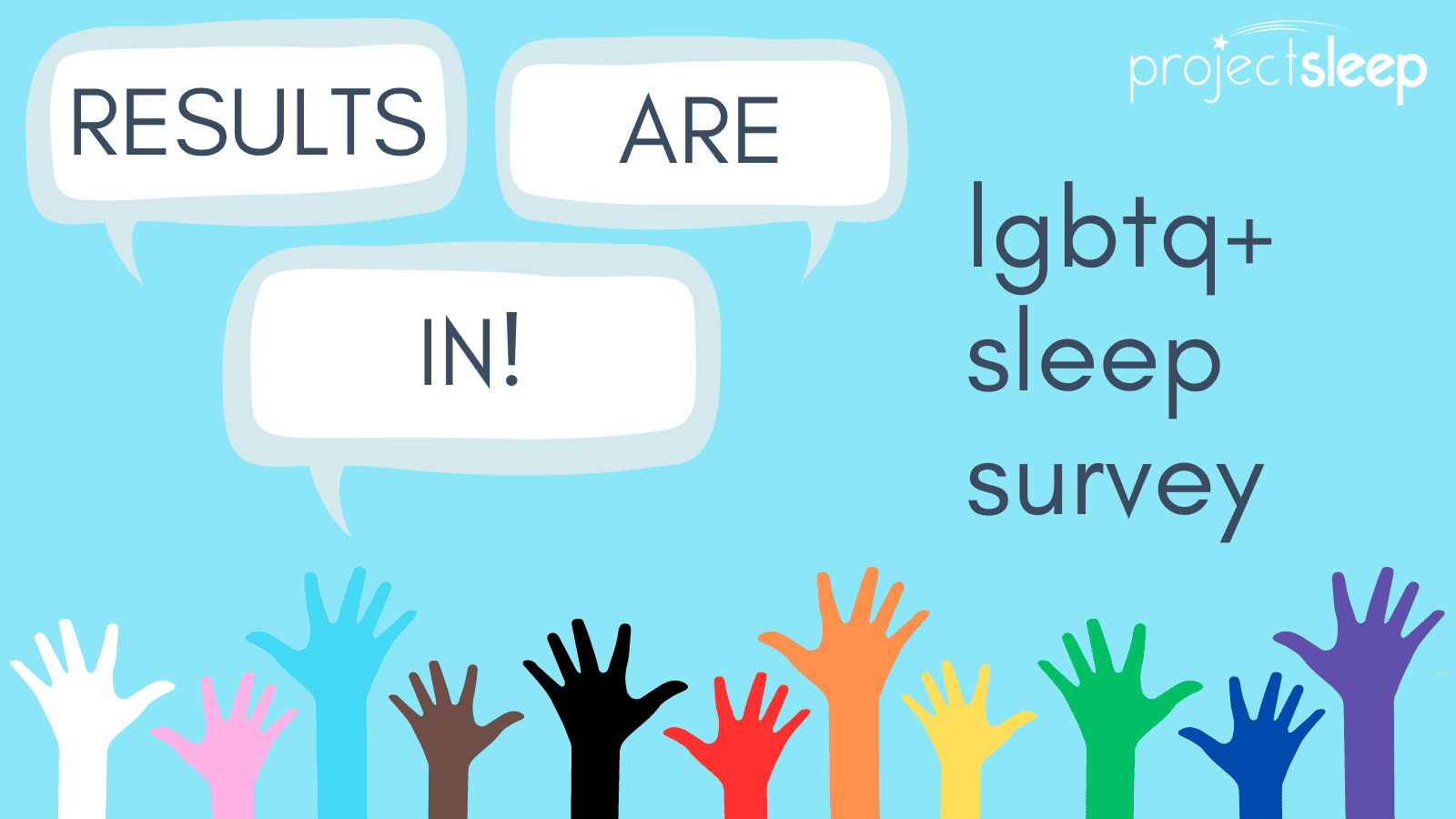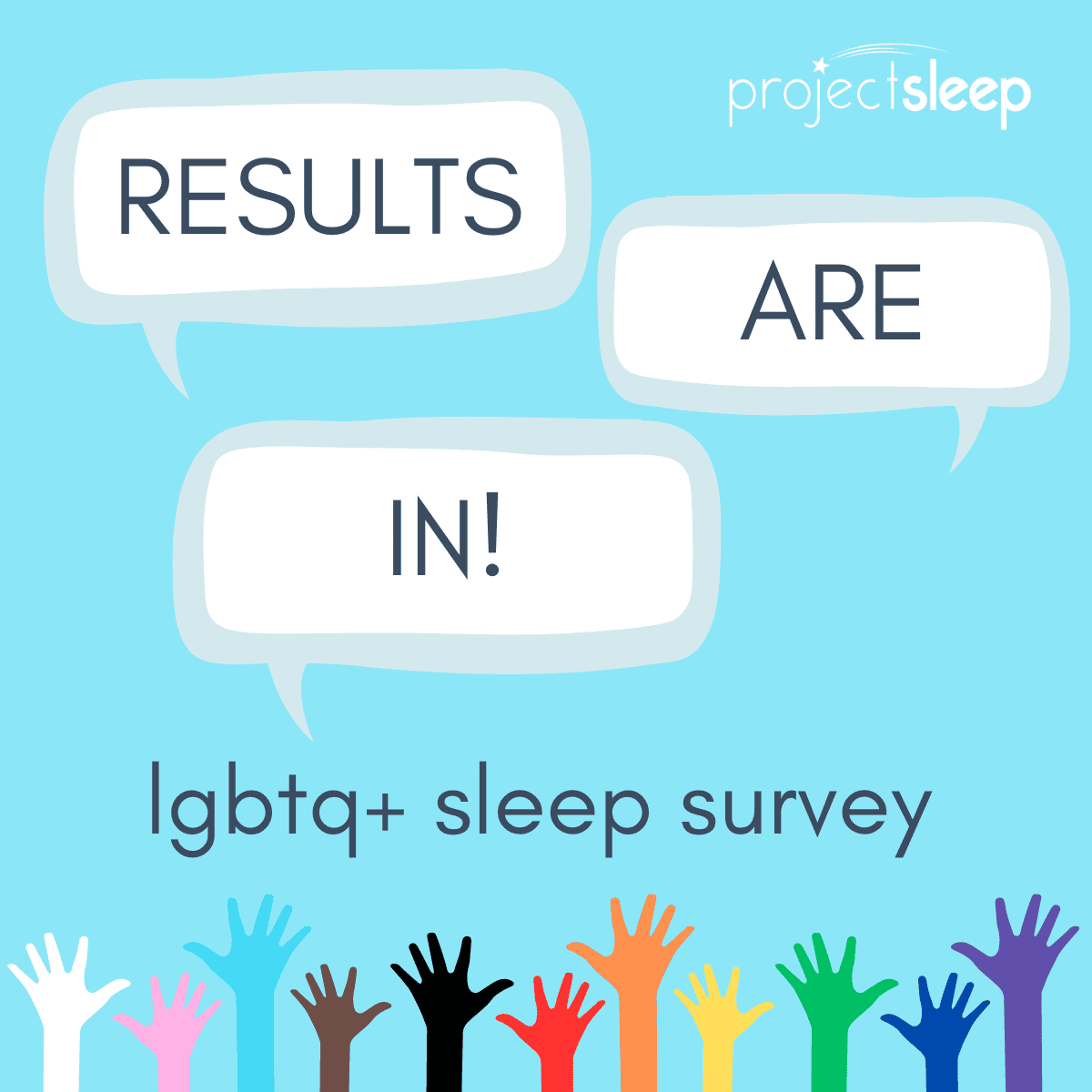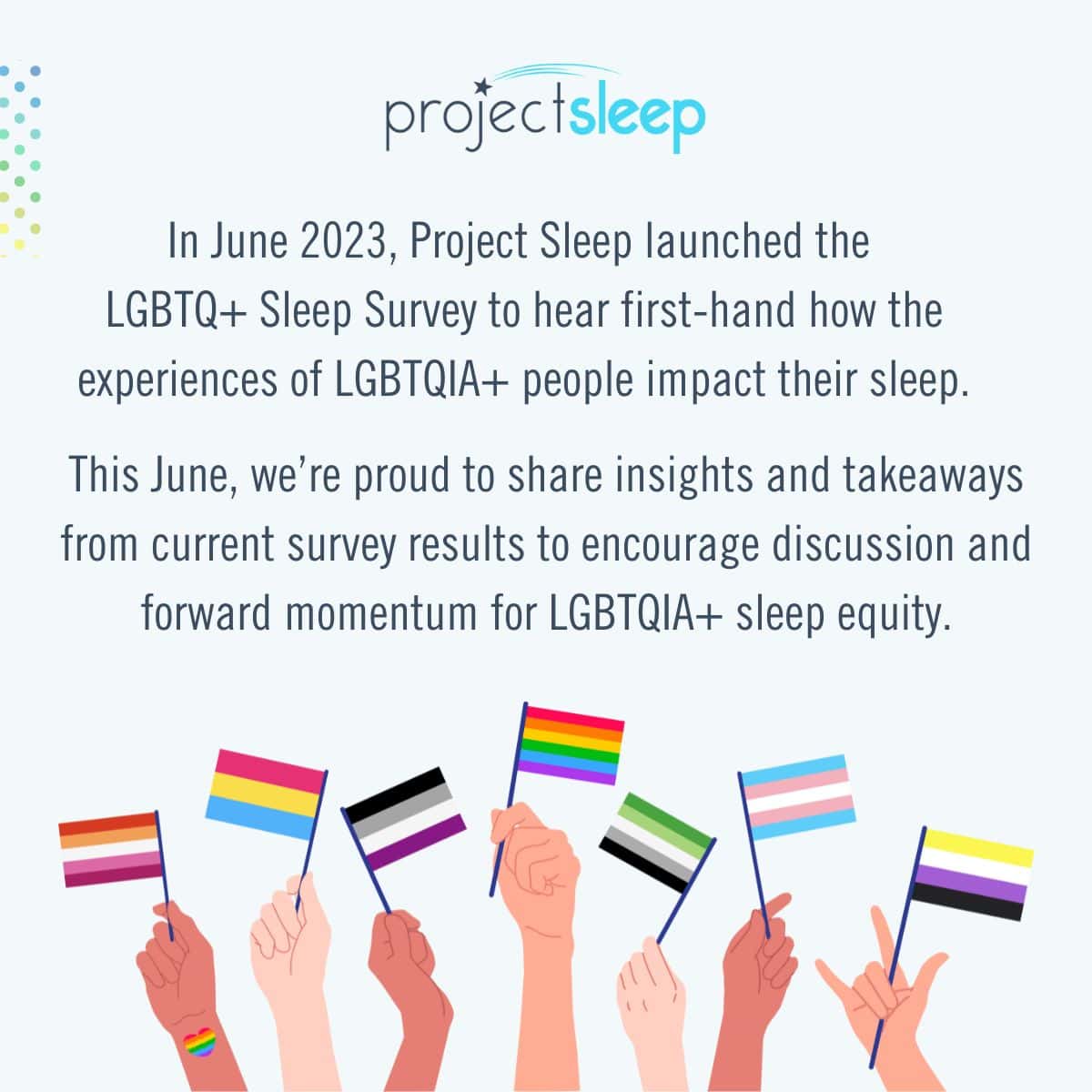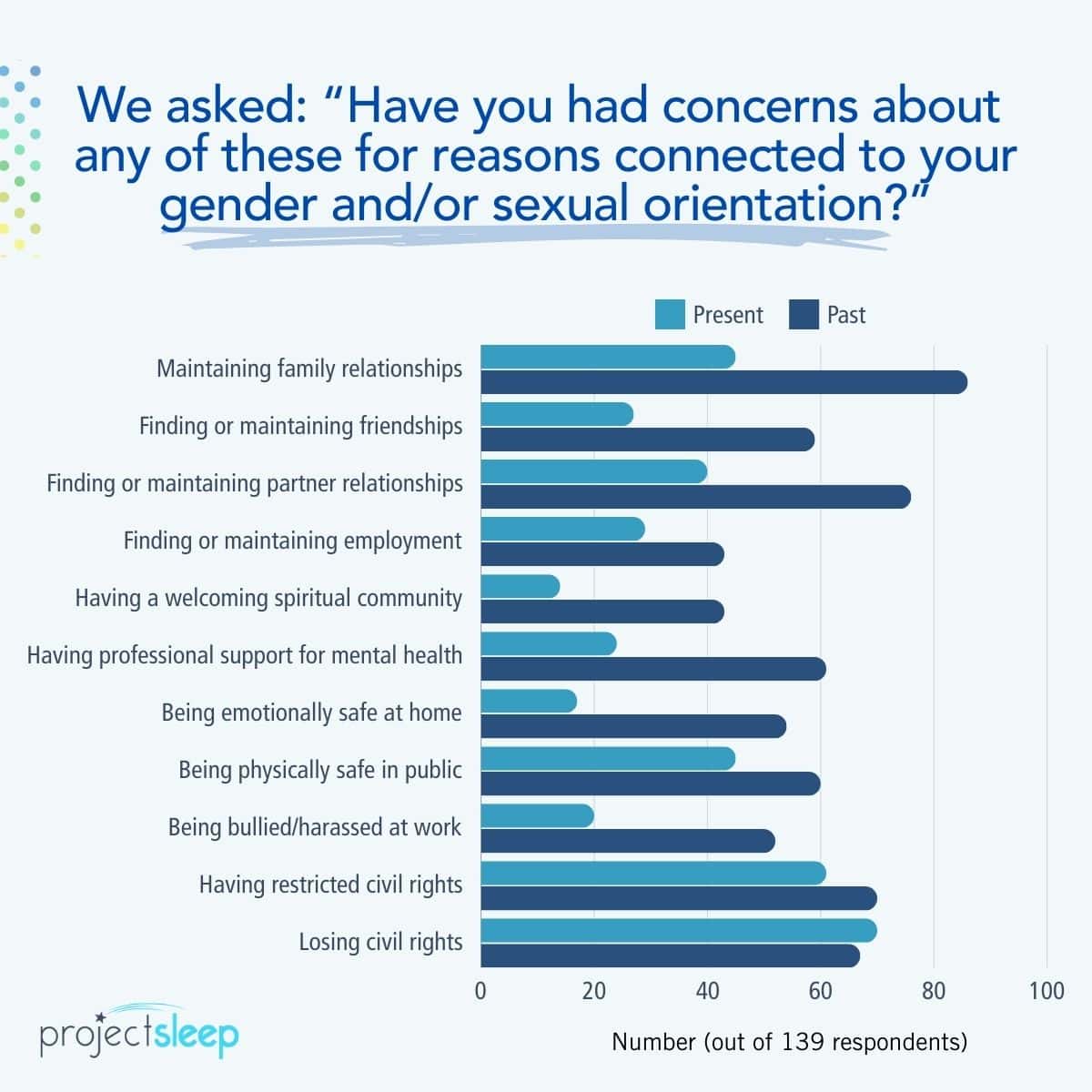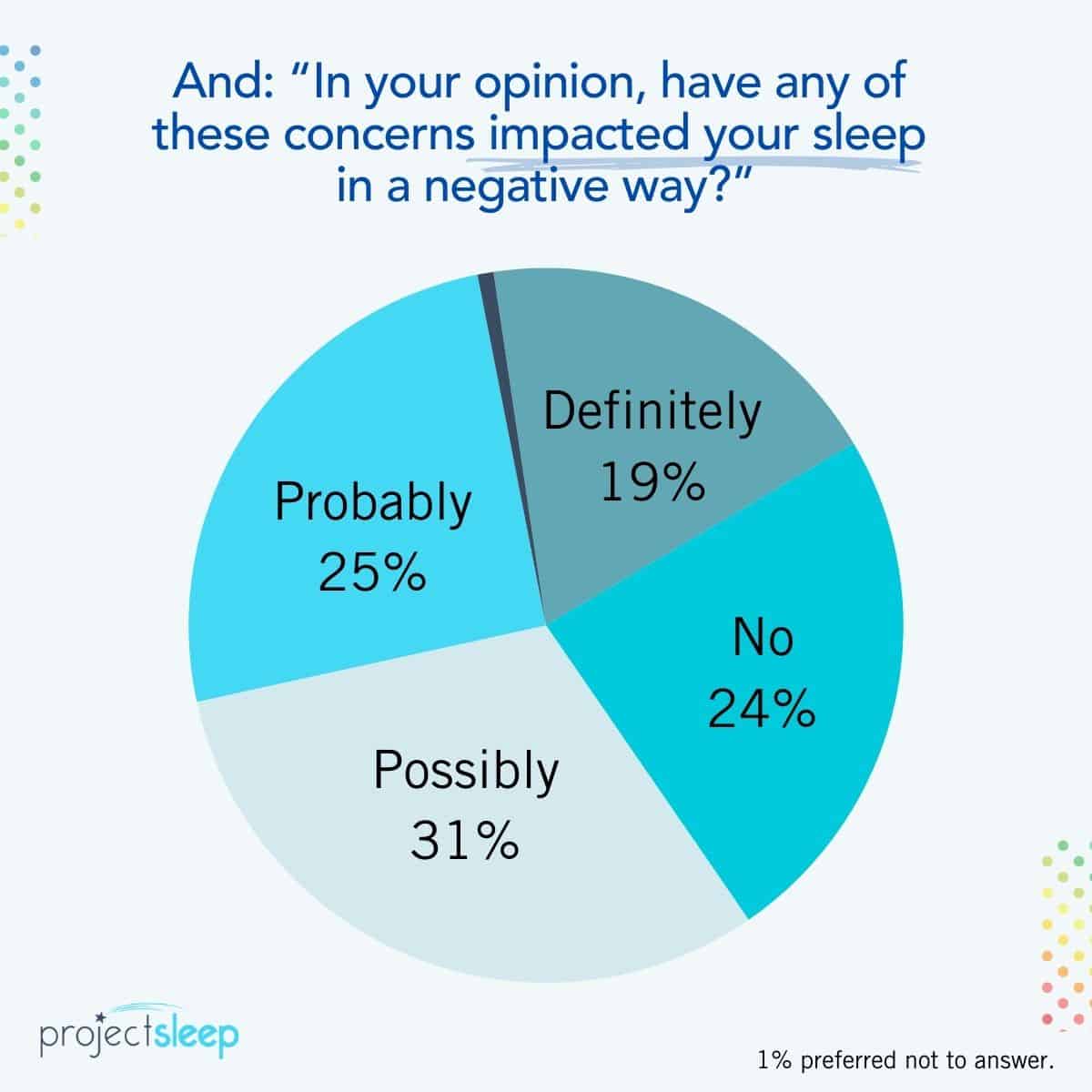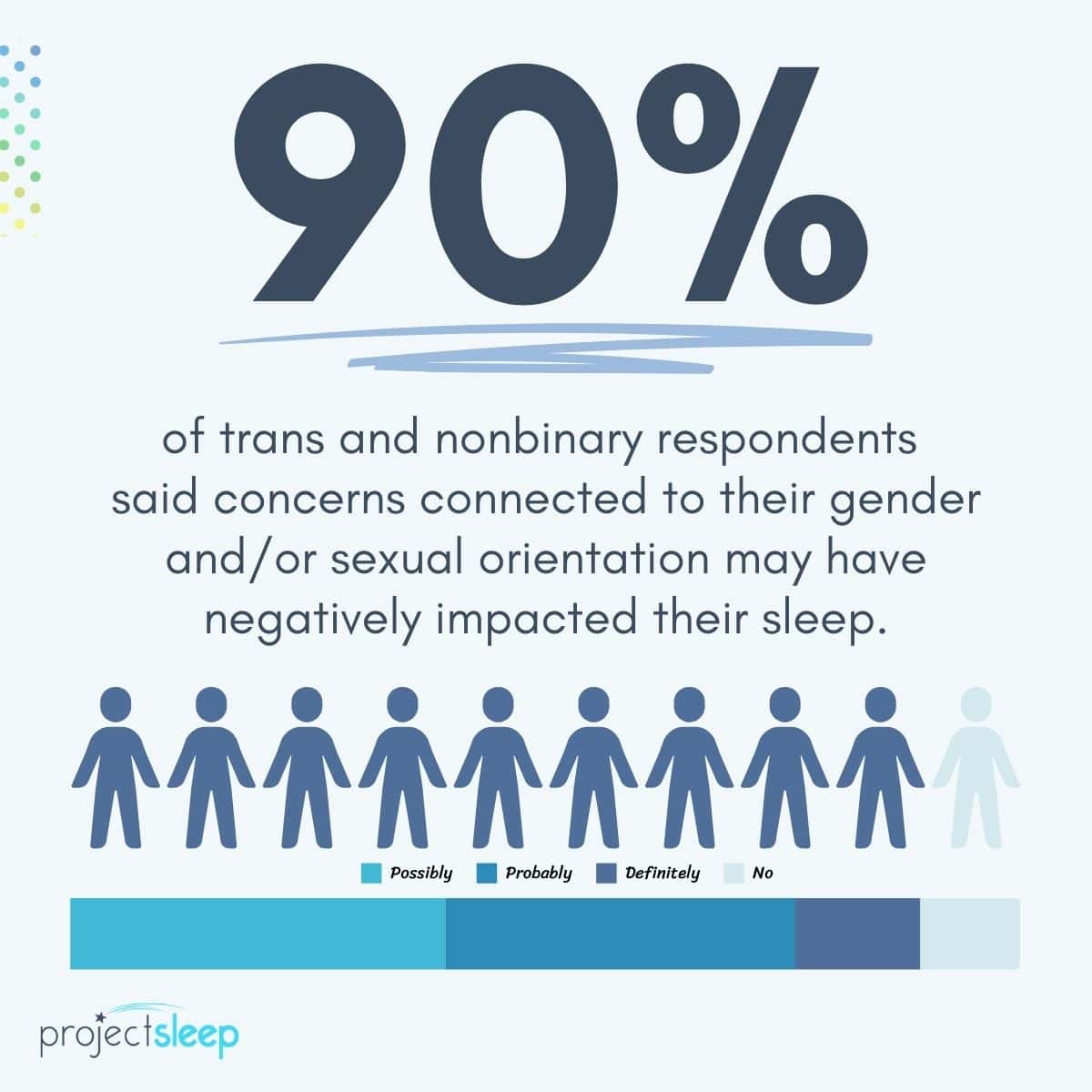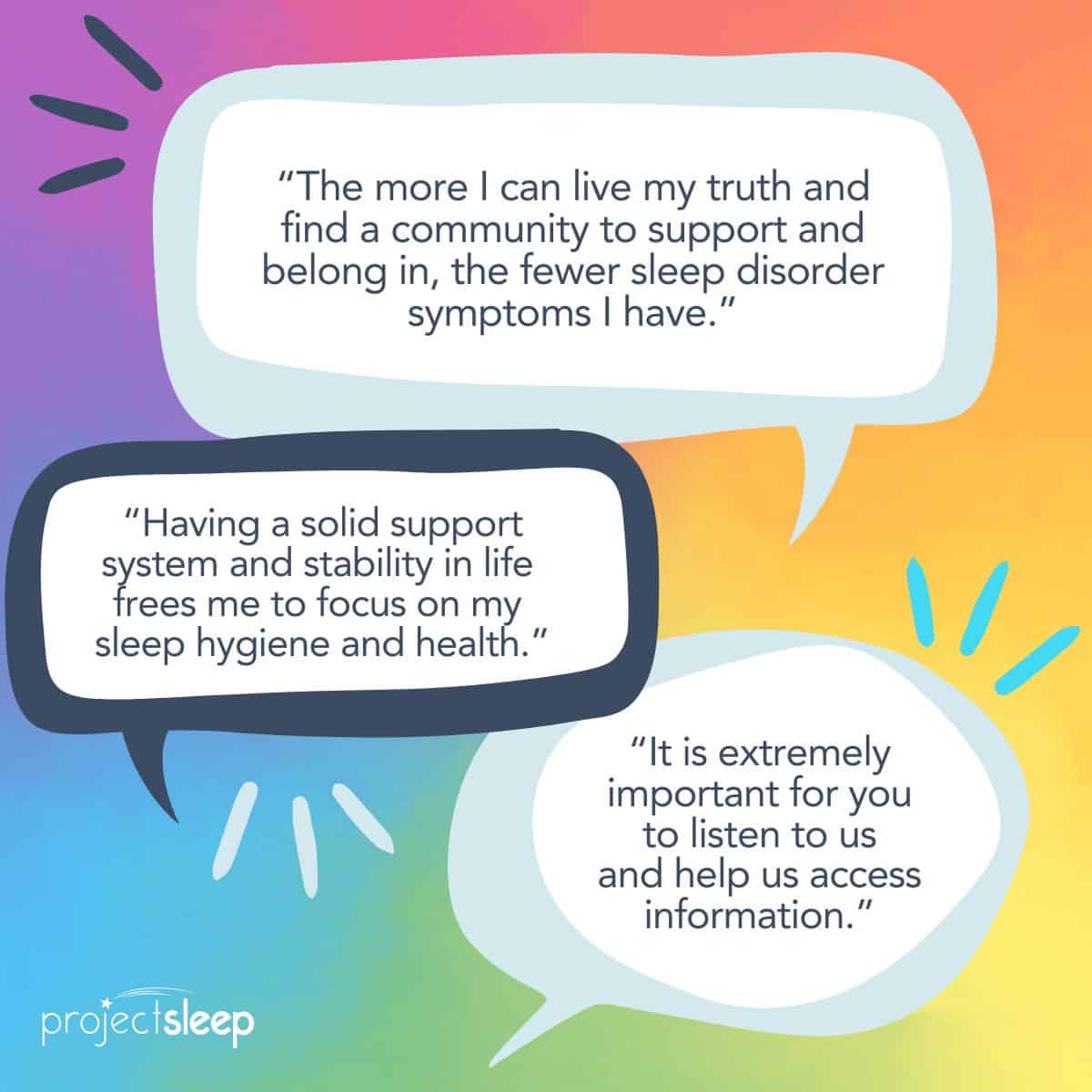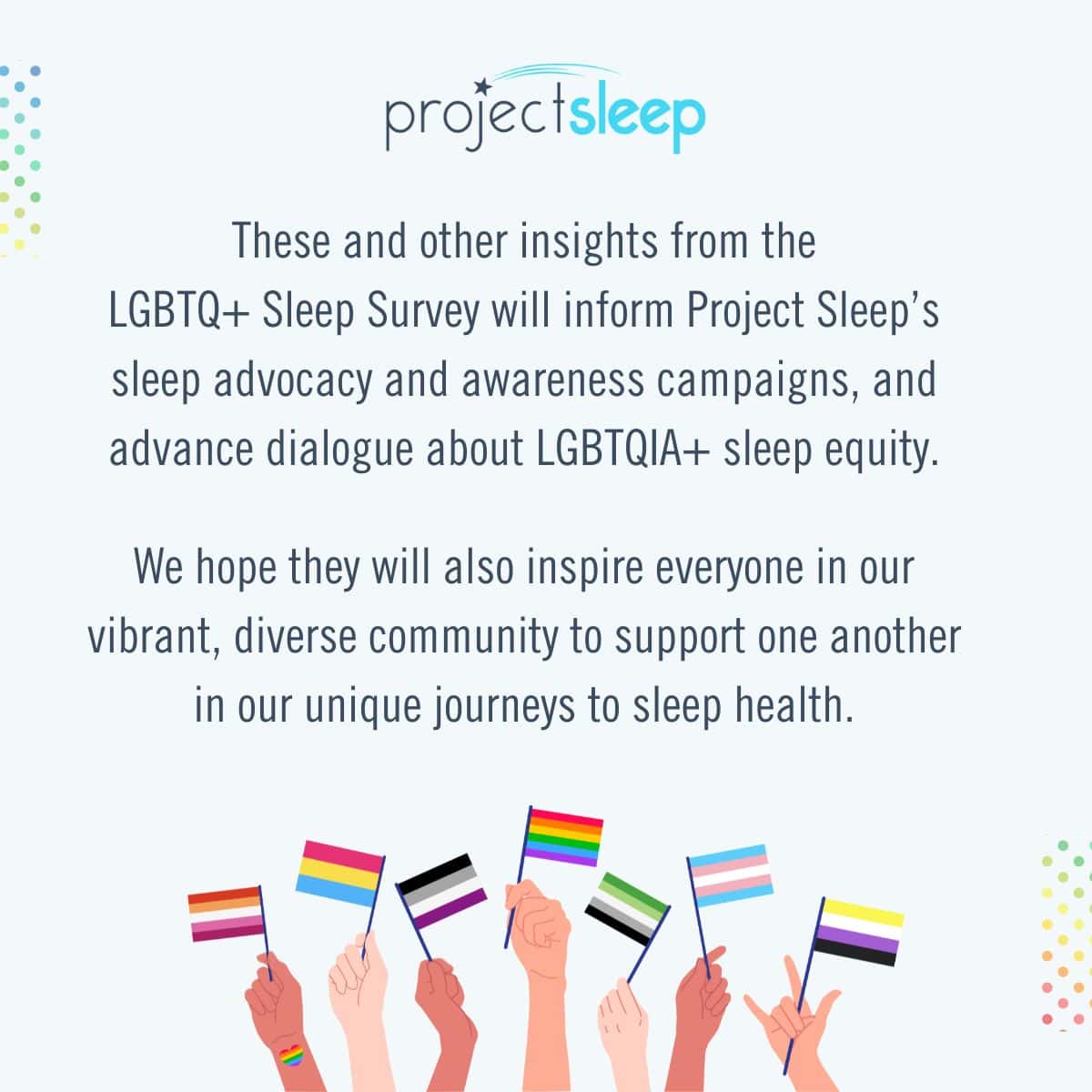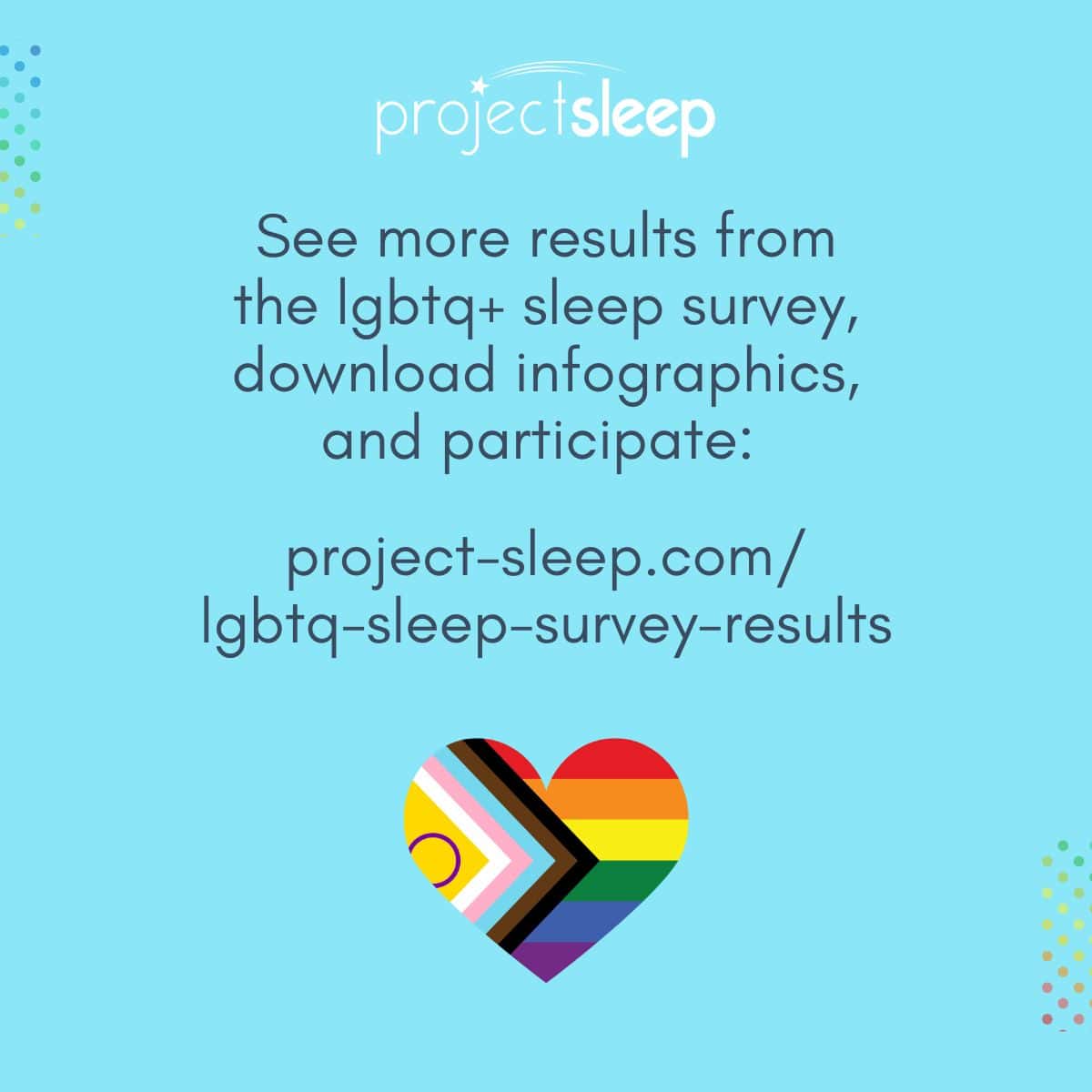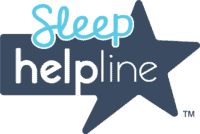LGBTQ+ Sleep Survey: Insights and Takeaways
In June 2023, Project Sleep launched the LGBTQ+ Sleep Survey to ask: How are identity and sleep health intertwined for LGBTQIA+ members of our community? We wanted to hear first-hand how the experiences of LGBTQIA+ people impact their sleep, to help inform our sleep advocacy and awareness campaigns and advance dialogue about LGBTQIA+ sleep health.
Well, y’all delivered! To date, 139 members of our community who identify as LGBTQIA+ have taken the survey to share their experiences around sleep and identity. This June, we’re sharing an update with insights and takeaways (and shareable graphics!) from current survey results to encourage discussion and forward momentum for LGBTQIA+ sleep equity.
CW: Distressing or traumatic experiences. This article talks about past and current experiences shared by many in the LGBTQIA+ community that can be distressing to think about or trigger trauma-related symptoms.
We Asked, You Answered
We asked a LOT of questions about sleep habits, sleep disorder symptoms, medical care for sleep issues, and more. But perhaps the most important questions were about social experiences — the day-to-day stressors and support that spring from the people around us and the larger society — and their impact on sleep. These experiences largely determine our ability to live and work in safe and stable environments, obtain care when needed, and access all the resources that make it possible to prioritize sleep and wellbeing.
What we found was that survey respondents have past and present concerns about multiple social factors, including maintaining relationships with family and friends, keeping a job, being emotionally safe at home, being physically safe in public, being able to get mental health care, and losing civil rights.

Overall, 75% of people who took the survey say these concerns may have negatively impacted their sleep, and when we looked at only transgender and nonbinary participants’ responses, that figure jumped to 90%.


When we asked respondents to describe in their own words how these concerns have impacted their sleep, many said that increased anxiety and stress stemming from social stigma, discrimination, anti-LGBTQIA+ legislation, and isolation they experience because of their gender and/or sexual orientation interrupt sleep patterns and, for those with sleep disorders, exacerbate symptoms. For some, family rejection also led to not having a consistent or safe place to sleep.
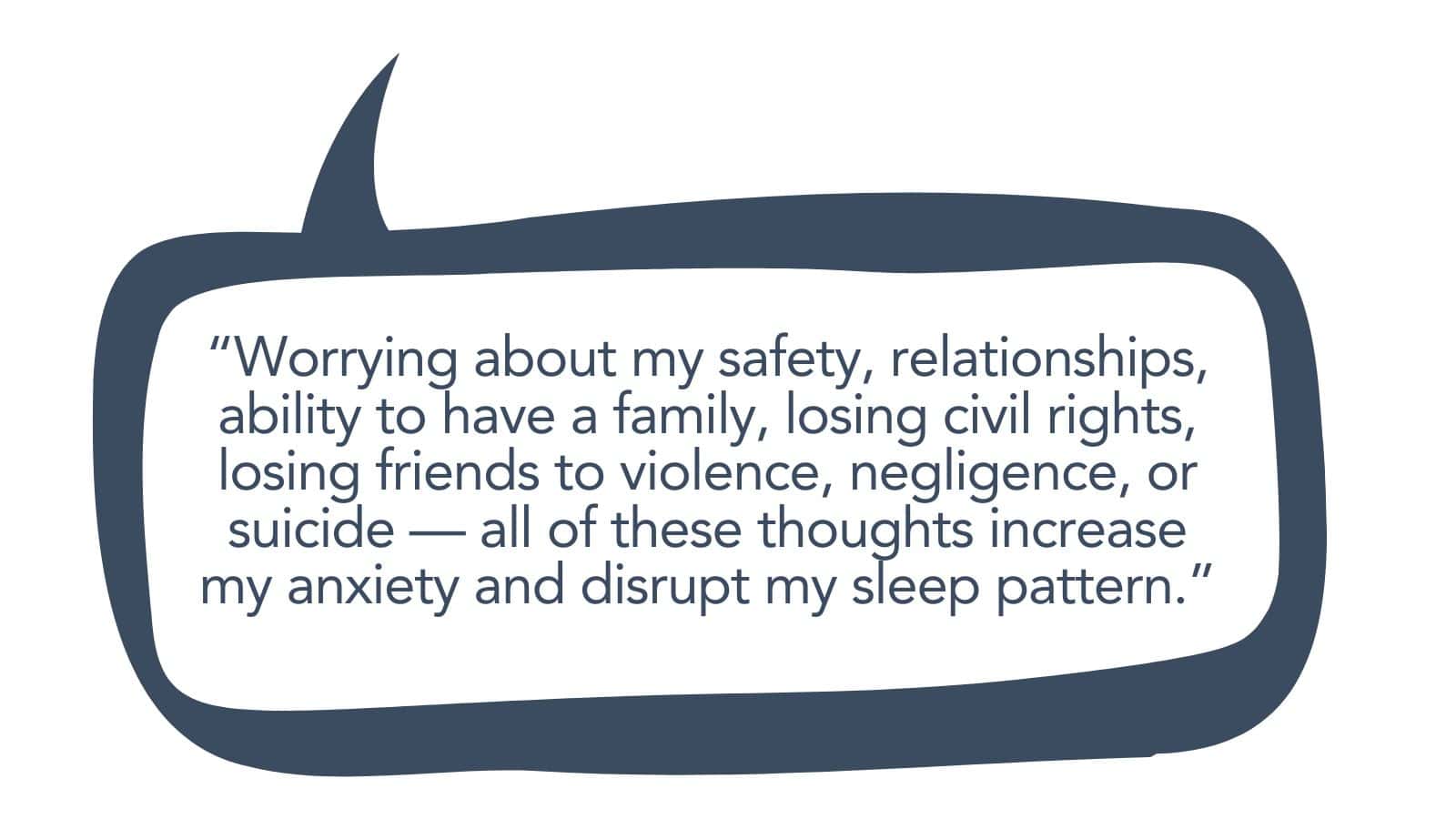
We also wanted to know what kinds of social factors might positively impact sleep for LGBTQIA+ people. The top three responses were finding effective treatment for sleep issues, lifestyle factors such as sleep hygiene, diet, and fitness, and supportive friendships. These were followed closely by supportive partners and family relationships, and mental health care. Finding and maintaining safe, stable housing and keeping a job also helped many respondents.
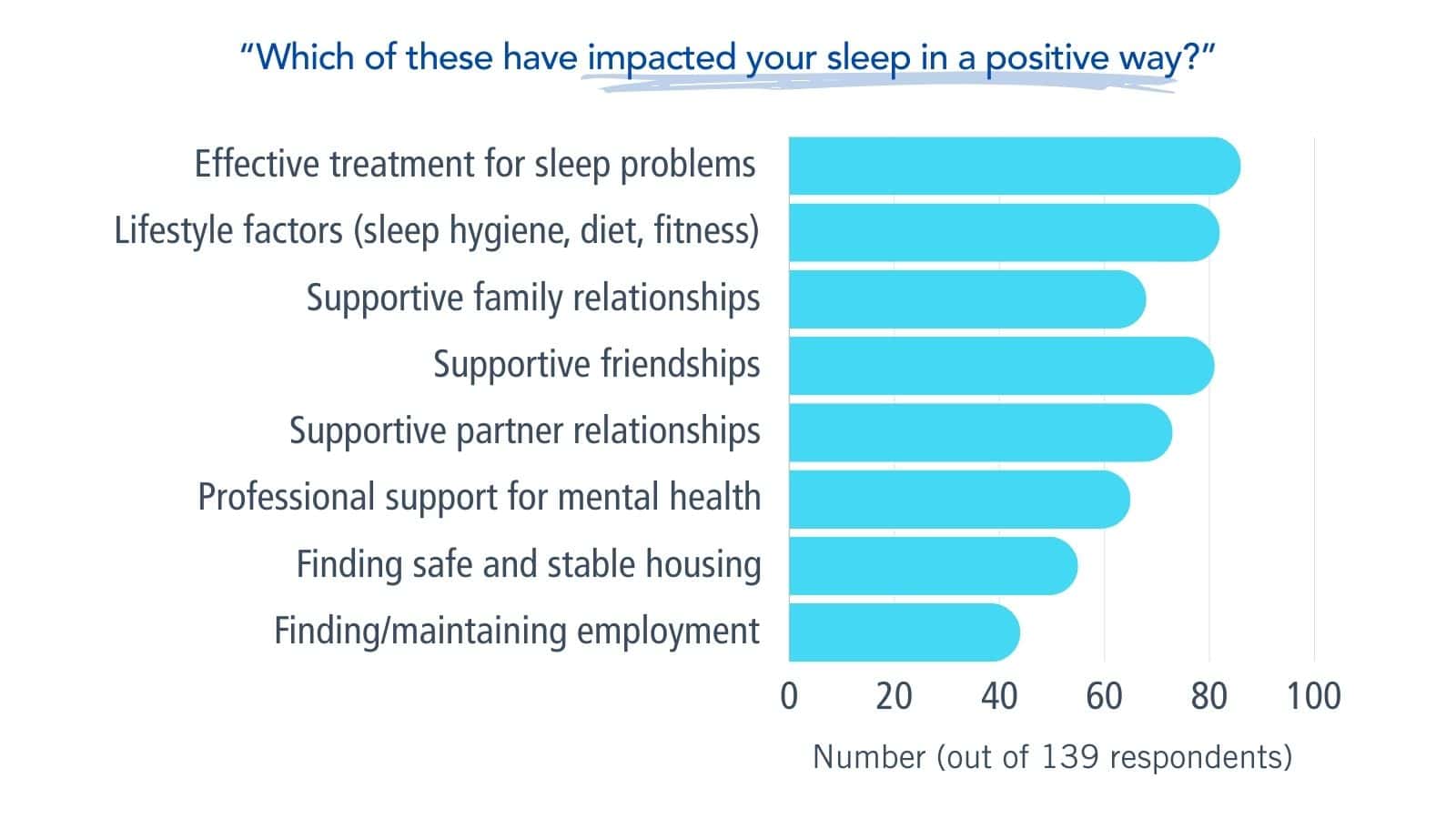
In their own words, respondents described how these factors help them sleep better. “It gives me hope that I can get through it and not all is lost,” said one. Another commented, “Support from community and resources for safe and secure living/survival is everything.” In general, respondents noted that physical and emotional safety, steady employment and housing stability, medical and mental health care, and supportive family, friends, and partners give them peace of mind and help them prioritize sleep and wellbeing.
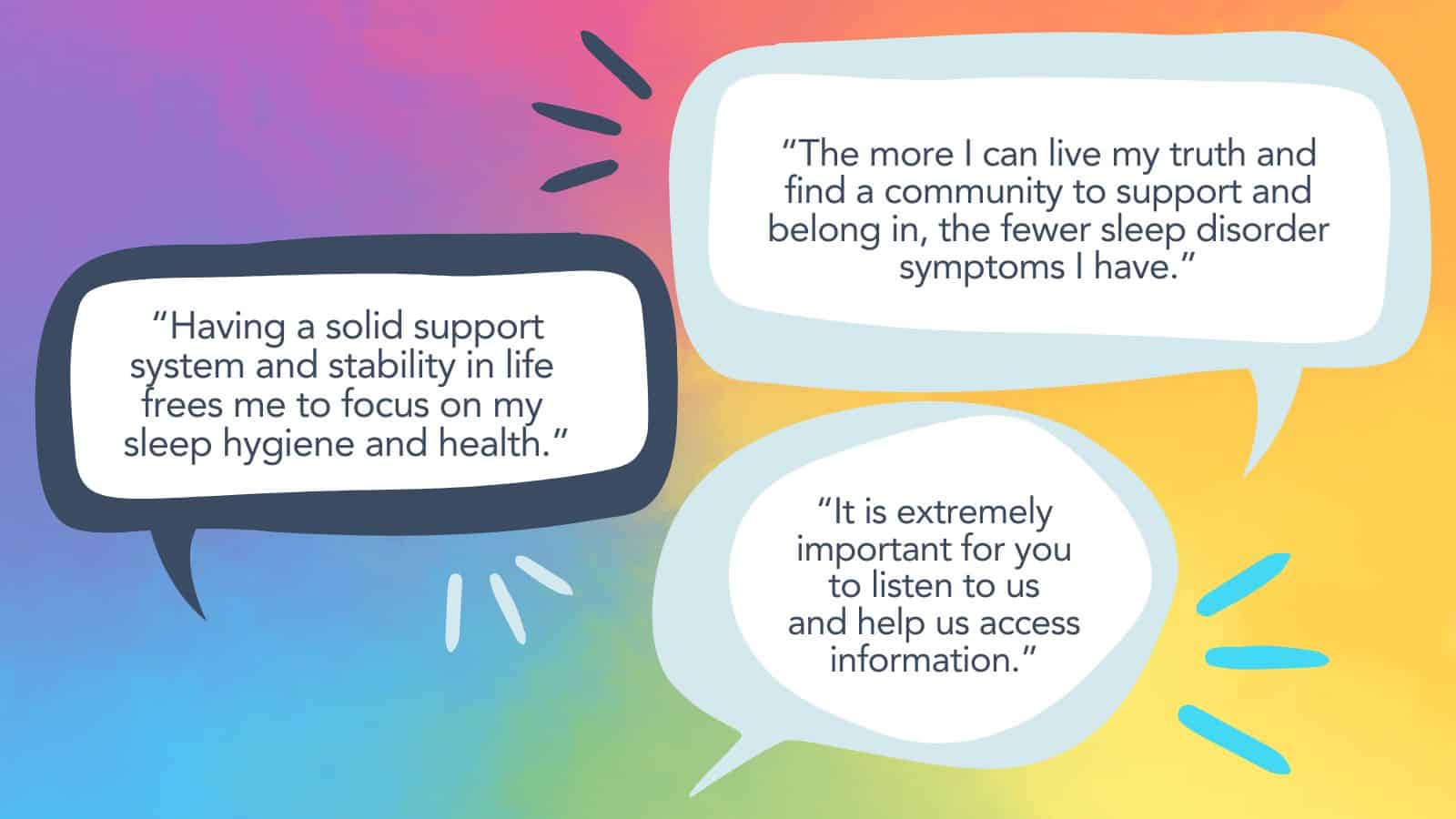
Finally, we asked participants what they would like to say to doctors, researchers, policy makers, or others who are in a position to help make things better for LGBTQIA+ health. Overwhelmingly, the answer was simple: “We are human beings just like everyone else. Ask questions, listen to us, take our concerns seriously, understand the impacts of intersectionality, and respect our identities.”
These and other insights from the LGBTQ+ Sleep Survey will inform Project Sleep’s sleep advocacy and awareness campaigns, and advance dialogue about LGBTQIA+ sleep equity. We hope they will also inspire everyone in our vibrant, diverse community to support one another in our unique journeys to sleep health.
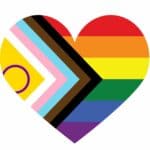
The survey is still open to LGBTQIA+ adults living anywhere in the world and takes about 10-20 minutes to complete. Click here to go to the survey and please share with your community!
Huge, heartfelt gratitude to everyone who has taken the survey for sharing your experiences so openly and fully. We could not do this work without you, and we are honored by your trust with these deeply personal stories.
June is Pride Month! Project Sleep is proud to highlight LGBTQIA+ sleep health and insights from LGBTQIA+ members of our community in June and throughout the year.
Project Sleep is dedicated to raising awareness about sleep health, sleep equity, and sleep disorders. Click here to learn more about our sleep equity work.
Are you living with narcolepsy or hypersomnia? Wake Up Narcolepsy offers a free online LGBTQIA+ support group. To join, make an account on HeyPeers.com and follow Wake Up Narcolepsy. From there you’ll be able to see all of the groups and register.
Shareable Graphics





